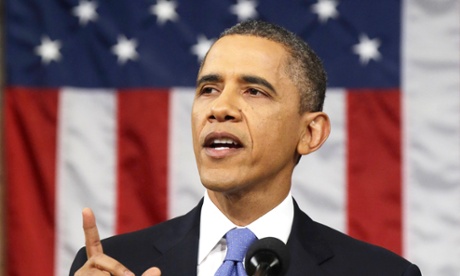
One of the initiatives President Obama announced in his State of the Union Address was the "MyRA," an IRA that workers could sign up for at their workplace. The MyRA would be invested in government bonds and provide a modest guaranteed rate of return.
The MyRA has several useful features. It's simple, it has low administrative costs, workers can have money deducted directly from their paychecks, and it has no risk. It also has the great advantage that President Obama can make MyRAs available to workers without seeking congressional approval.
However there was one very notable downside to the MyRA. Workers could not accumulate more than $15,000 in these accounts, at which point they would be required to fold their MyRA into an IRA run by the financial industry. People who commented on this requirement all assumed that this was a sop to the industry.
When the accounts are small, the industry wouldn't make any money on them anyhow. Once they get to be a decent size the government will require savers to park their money with a bank or brokerage house. This is nothing but good news for the industry.
Everyone understands the power of the financial industry, so perhaps Obama had to include a $15,000 cap in order to avoid its wrath, but that doesn't mean the rest of us shouldn't be asking the obvious question. If the private financial industry is more efficient than the government, then why do we have to force people to use it? What's wrong with giving people the option of keeping their money in a MyRA?
This is not the only context in which this question arises. The Postal Service recently put forward a proposal to start offering basic banking services to take advantage of its retail infrastructure. This should be an obvious win-win.
There are tens of millions of low and moderate income people who are poorly served by the banking system. The Postal Service would be able to offer them checking accounts and other services at a lower cost than private competitors by taking advantage of underutilized facilities. This will extend banking services to the unbanked population and potentially be an important source of revenue to the Postal Service.
This is not a new idea. The Postal Service used to offer banking services and many countries still have postal banks. So there is good reason to believe that this effort could succeed.
The other notable area in which there has been interest in public competition with the private sector is healthcare insurance. During his campaign, President Obama had promised there would be a public Medicare-type option as part of his healthcare plan. There was much support for a public option in Congress and across the nation, but the insurance industry was powerful enough to keep it out of the final bill.
In these and other cases key industries use their political clout to avoid having to compete with the government. This fear of government competition presumably stems from the fact that they would lose business and profits to the government because it could provide the service at a lower cost.
There is a real basis for this concern. In the case of Social Security, administrative costs are less than 0.6 percent of annual benefit payments. Using payout equivalents as the denominator, the cost of administering private funds averages 20-30 times this amount. Someone has to pay for those high Wall Street salaries.
There is a similar story with Medicare and Medicaid where administrative expenses average less than 3% of the healthcare services provided compared with more than 15% with private insurers. This gap is reduced after making adjustments for differences in healthcare costs per patient, but there is no doubt that the administrative costs eat up a much larger share of healthcare spending on the private side than the public.
Given the additional costs associated with excluding public options in healthcare, finance, and possibly other sectors of the economy, we are in effect making the economy less efficient. We are forcing the public to pay more so that private firms can have more profits and their top executives can enjoy bigger paychecks.
This is sometimes characterized as a debate between people who like the government and people who like the market. It isn't. People who like the market to determine outcomes should be happy with the idea of having the government compete on a level playing field with private sector firms.
If private firms offer a lower price or a better product, the government will be driven from the market with little harm done. However if the private firms prevail because the government is not allowed to compete, this is equivalent to taxing the public by making it pay more than necessary for health insurance and other services, and handing the revenue over to the firms in the industry. That's a great deal for these industries, but it has nothing to do with a commitment to a free market or good policy.

